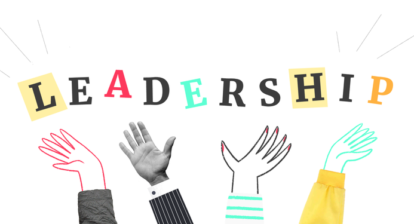Life presents a myriad of challenges, both big and small. From navigating workplace dynamics to managing personal relationships and confronting the daily obstacles that litter our paths, our problem-solving skills are constantly put to the test. Wouldn’t it be empowering to possess a universal toolkit to tackle these challenges head-on? Enter the MAKE Way. This unique approach, forged in the crucible of leadership training, can be applied universally to just about every problem. Here’s how:
1. Mastery: Embrace a Growth Mindset
Self-awareness is Power.
Begin by understanding yourself. Recognise your emotions, triggers, strengths, and limitations.
Adopt a growth mindset. This means viewing challenges as opportunities for growth rather than insurmountable obstacles.
Practice mindfulness. Stay present in the moment and avoid catastrophising. This allows for clarity in decision-making.
2. Authenticity: Stay True, Yet Adaptable
Genuine Responses are the Most Resonant.
Problems often get magnified when we’re not genuine in our responses. Whether it’s a personal disagreement or a team challenge, authenticity fosters trust.
However, being authentic doesn’t mean being rigid. Flexibility is key. Adaptability combined with genuine intent creates a solution-focused environment.
3. Knowledge: Arm Yourself with Information
Knowledge Dispels the Clouds of Confusion.
When confronted with a problem, dive deep. Research, read, and converse. Understand the issue from all angles.
Acknowledge what you don’t know. It’s alright to seek external help or consult experts when faced with unfamiliar terrain.
Once armed with knowledge, brainstorm possible solutions. Lay them out, weigh the pros and cons, and choose a route forward.
4. Engagement: Involve, Discuss, Decide
The Best Solutions are Often Collaborative.
Engage with stakeholders. If it’s a personal problem, discuss with friends or family. At work, involve your team.
Active listening is paramount. Sometimes, the nuances of a solution lie in the unspoken words or the underlying emotions. Be attentive to these.
Collaborative decision-making not only shares the responsibility but often leads to well-rounded, comprehensive solutions.
Applying MAKE to Everyday Scenarios:
Scenario 1: Disagreement with a Colleague
Mastery: Understand your emotions. Are you upset because of the disagreement or is there an underlying issue?
Authenticity: Address the disagreement genuinely. Avoid passive-aggressive tendencies.
Knowledge: Know what caused the disagreement. Was it a miscommunication or a difference in perspectives?
Engagement: Discuss openly with the colleague, and perhaps involve a mediator if necessary.
Scenario 2: Choosing a New Career Path
Mastery: Introspect. What truly motivates you?
Authenticity: Be genuine about your ambitions and fears.
Knowledge: Research potential career paths, industries, and roles.
Engagement: Discuss with mentors, peers, or career counsellors.
In essence, the MAKE Way offers a well-structured path to tackle problems, making them less daunting. It’s a versatile strategy, as effective in a boardroom as it is at the kitchen table. Problems are inevitable, but with the MAKE Way, you’re equipped to navigate them seamlessly, turning each challenge into an opportunity for personal and professional growth.




